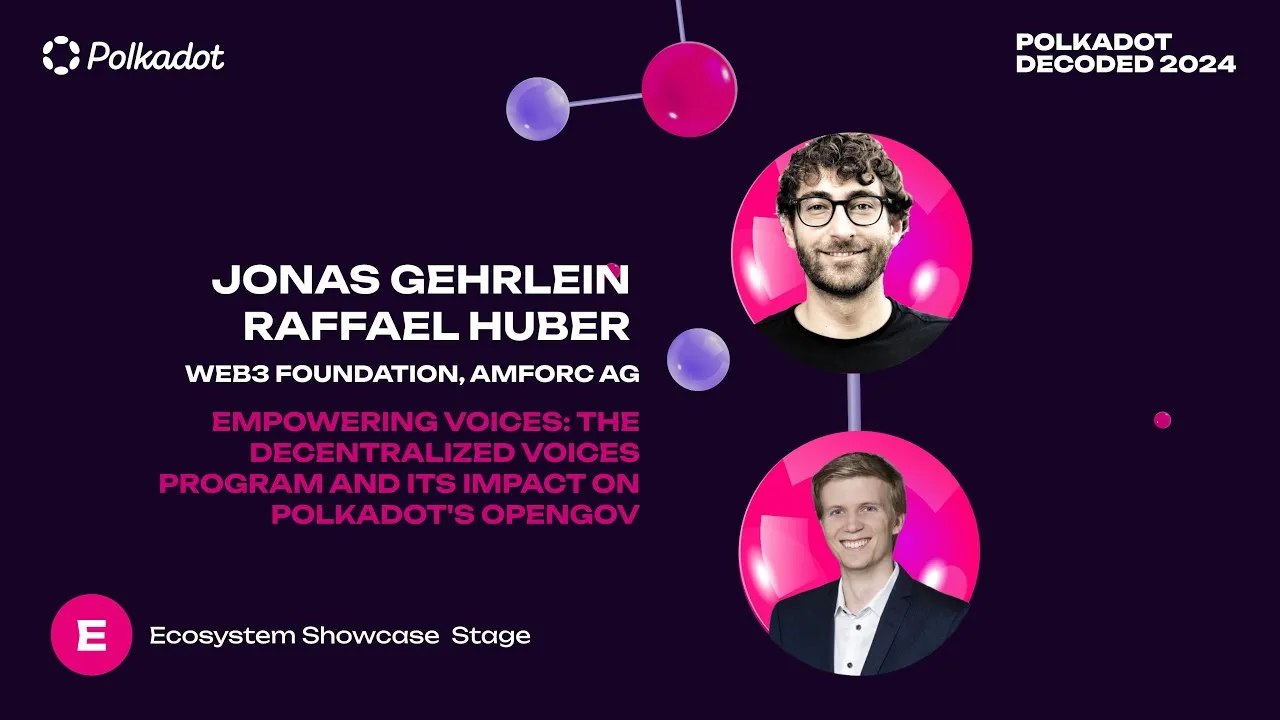Polkadot’s recent Polkadot Decoded 2024 event highlighted a significant initiative aimed at enhancing the decentralized governance of its ecosystem: the Decentralized Voices (DV) Program. Presented by Jonas Gehrlein and Raffael Huber from the Web3 Foundation and Amforc AG, the session delved into the program’s impact on Polkadot’s OpenGov platform. This article provides an in-depth look at the key insights from their talk, emphasizing the importance and influence of the DV Program on Polkadot’s governance structure.
Understanding the Polkadot Decentralized Voices Program
The DV Program was introduced by the Web3 Foundation to empower individuals within the Polkadot and Kusama ecosystems by providing them with substantial voting power. This initiative aims to balance the scales of influence, ensuring that passionate and knowledgeable community members can effectively participate in governance, regardless of their individual DOT holdings.
Deventraliced Voices Program Key Objectives:
- Enhance Decentralization: By delegating significant voting power to selected community members, the program aims to dilute the influence of large token holders.
- Empower Active Participants: The focus is on individuals who are highly active in governance but may not possess substantial DOTs to influence outcomes significantly.
Mechanics of the Polkadot DV Program
The program operates by delegating large amounts of DOT and KSM to selected individuals. For instance, in the first cohort, each of the seven delegates was given the power to vote with 6 million DOTs on Polkadot, and six delegates were given 5,000 KSM each on Kusama, both at six times conviction. This strategic delegation is rotated every three months to ensure a dynamic and engaged governance process.
Selection of Delegates:
The delegates are well-known community members who have demonstrated a consistent and active involvement in governance. The first cohort included names like ChaosDAO, Jimmy Tudeski, Kukabi, PolkaWorld, and more, each selected for their significant contributions to the ecosystem.
DV Programs Impact on Polkadot Governance
Gehrlein and Huber’s analysis revealed several key impacts of the DV Program on Polkadot’s OpenGov:
- Increased Turnout: The program saw high turnout rates from delegates, indicating their active participation in governance. Some delegates voted on nearly all referenda, contributing significantly to the decision-making process.
- Diverse Voting Behavior: The data showed a diversity of voting behavior among delegates, with some tending towards more conservative voting patterns while others were more progressive. This diversity is crucial for a healthy governance ecosystem as it ensures a broad spectrum of opinions and decisions.
- Improved Voting Power Distribution: The introduction of the DV Program led to a more equitable distribution of voting power. Before the program, the top three voters held nearly 50% of the voting power. Post-implementation, their collective power reduced to 37%, indicating a more balanced influence across the community.
Polkadot OpenGov Statistical Insights
The presentation highlighted several statistical measures to evaluate the program’s success:
- Turnout Analysis: Delegates participated in a significant number of controversial referenda, showcasing their commitment to active governance.
- Voting Direction and Alignment: The alignment matrix indicated that while some delegates often voted similarly, there was still substantial diversity, preventing a monolithic voting block.
- Banzhaf Power Index: This measure showed a decrease in the disproportionate power held by top voters, aligning more with a fair representation of the community’s voice.
- Gini Coefficient: The reduction in the Gini coefficient from 0.76 to 0.67 post-DV Program indicates a more equitable distribution of voting power.
Conclusion
The Decentralized Voices Program has successfully enhanced the democratic nature of Polkadot’s governance. By empowering active community members and ensuring a diverse range of opinions, the DV Program has made significant strides towards a more inclusive and decentralized decision-making process. As Polkadot continues to evolve, such initiatives will be crucial in maintaining a robust and equitable governance framework.4








